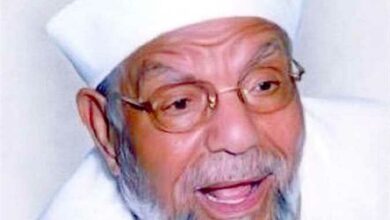State-owned flagship newpaper Al-Ahram takes an unsurprising route on such a patriotic national holiday. Its front-page lead article centers on President Mubarak’s declaration in a commemorative speech that the 1973 was “a historical turning point for Egypt and a symbol of Egypt’s lofty position and importance.”
A secondary headline on the main Mubarak-centric article offers some potential clues for modern day Kremlinologists who like to parse official statements for indications of the political winds. Mubarak, according to the headline, declared, “We are working for the sake of a modern civil state that doesn’t mix politics and religion and stands by the poor.”
The comments about politics and religion are a fairly obvious continuation of the government’s never-ending ‘protecting Egypt from the Muslim Brotherhood’ theme that should only grow stronger as parliamentary elections approach. But the key word just might be the modern civil state of the future as opposed to Egypt’s militarized past represented by the October War.
A possible Gamal reference? A hint that it’s time to pass Egypt’s leadership reins into civilian hands? Who knows, but it’s always fun to speculate about government word choices since very little on Al-Ahram’s front page ends up there by accident.
Much of the rest of the front page gives us details on Mubarak’s busy diplomatic day, which includes sit-downs with Palestinian Authority President Mahmoud Abbas, prominent Iraqi politician Iyad Allawi and former US President Bill Clinton, who is apparently in town for a function with the American chamber of commerce.
On Page 3, Al-Ahram brings us details on the real hot story in local media circles, the abrupt firing of one of the country’s best journalists–Dostour editor Ibrahim Eissa. The Ahram coverage offers the basic details of the end of Eissa’s tenure, thanks to editorial differences with the newspaper’s new ownership. The key, ‘What does THAT really mean?’ phrase: According to the article, the new owners–Sayed al-Badawy and Reda Edward–felt that, “the paper could not bear the burden of the problems caused by (Eissa’s) editorial policies.”
Curiously, much of the Al-Ahram article dwells on borderline tedious details of Eissa’s monthly salary and the massive raise offer he allegedly refused in exchange for giving up editorial power but remaining as a writer and columnist.
Independent daily Al-Shoruk puts the Dostour debacle on its front page, with a sad but beautifully framed shot of employees carrying out boxes and pictures from Eissa’s office underneath the trademark Dostour logo.
The accompanying article bring us extensive comments from primary new owner al-Badawy–who also moonlights as recently elected head of the opposition Wafd Party. In a hastily convened press conference on Tuesday, al-Badawy boasted of improvements he had made in the Dostour operation, including raising staff salaries across the board even though the paper wasn’t thriving financially.
Shorouk also speaks with Eissa, who confirms that he “absolutely refused” a lucrative offer to remain as a columnist. Eissa dismisses the claims of fiscal irresponsibility and paints his firing as a purely political decision reflecting a government-backed effort to marginalize troublesome voices ahead of parliamentary elections this year and a presidential vote next fall.
“There’s a silencing of many of the independent voices present,” Eissa tell Shorouk. “It’s another return to the atmosphere before 2004 when the Kefaya movement appeared on the Egyptian street.”
As for Dostour itself, the paper is clearly in the control of its owners, with no sign of any sort of dissident Eissa support. Al-Badawy’s picture and comments from the press conference occupy the whole top of the front page. Also above the front-page fold, an unsigned open letter to the newspaper’s loyal readers under the headline, “She will remain Al-Dostour.”
“There will be no change in the newspaper’s politics,” the editorial states. Dostour, it says, “will remain a pulpit of freedom.”
Also lost in the whole Eissa shuffle, is a front-page editorial written by Mohamed ElBaradei. One of the theories floated after Eissa’s dismissal was that the last-straw clash between Eissa and his bosses centered around this article. But al-Badawy denied that in his press conference and pledged to run the complete, uncut ElBaradei article today.
Headlined, “The October War…what is bigger than victory,” the article hails the 1973 Egyptian assault on Israeli positions in Sinai, “a victory for precision and planning. It was the opposite example of the chaos and randomness that Egyptian society has known since then.”
Egypt's papers:
Al-Ahram: Daily, state-run, largest distribution in Egypt
Al-Akhbar: Daily, state-run, second to Al-Ahram in institutional size
Al-Gomhorriya: Daily, state-run
Rose el-Youssef: Daily, state-run, close to the National Democratic Party's Policies Secretariat
Al-Dostour: Daily, privately owned
Al-Shorouk: Daily, privately owned
Al-Wafd: Daily, published by the liberal Wafd Party
Al-Arabi: Weekly, published by the Arab Nasserist party
Youm7: Weekly, privately owned
Sawt el-Umma: Weekly, privately owned



